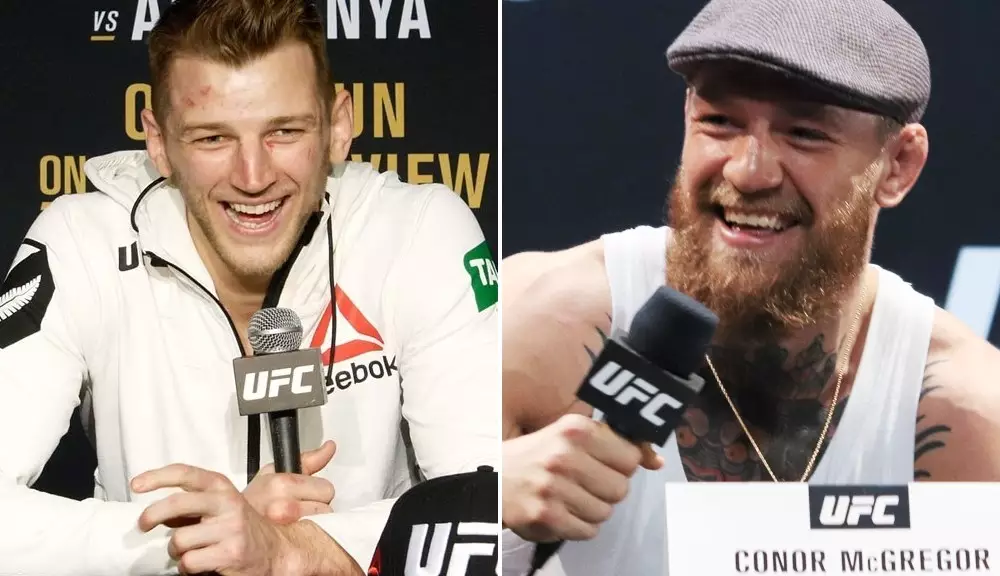The landscape of the UFC lightweight division is constantly shifting, with fighters vying for position, recognition, and high-stakes matchups. Recently, Dan Hooker weighed in on the debates surrounding Conor McGregor’s next fight, declaring that the Irishman would have more to gain by facing him rather than Michael Chandler. This sentiment raises important questions about matchmaking dynamics in the UFC and what fighters stand to achieve from their bouts.
In light of McGregor’s sporadic activity within the octagon, Hooker argues that the stakes involved in a matchup against him are considerably higher for the former champion. Currently, McGregor’s record stands at 22 wins and 6 losses in MMA, with 10 of those victories occurring in the UFC. On the flip side, Chandler’s record is 23-8, with a 2-3 UFC slate. Hooker perceives Chandler’s decision to engage with Oliveira rather than waiting for a clash with McGregor as a strategic error. In Hooker’s view, a victory over Chandler would not significantly elevate McGregor’s standing—something he desperately needs as he seeks redemption within the lightweight ranks.
This perspective highlights a crucial aspect of how fighters assess potential opponents: the balance between risk and reward. McGregor, who thrives on high-profile contests, would benefit more from a matchup that could potentially position him back within the top-tier standings. Conversely, for McGregor to defeat Chandler—someone who is currently struggling to establish himself among the elite—would not offer a substantial boost to his career trajectory.
While Hooker acknowledges Chandler’s motivations to avenge his previous loss to Oliveira, he questions the merits of this rematch from the latter’s perspective. Oliveira stands as a formidable opponent, with an extensive record that showcases his prowess (34-10 MMA, 22-10 UFC). Yet, the question remains—what tangible benefits does Oliveira gain from facing Chandler again? This speaks volumes about the delicate nature of matchmaking in the UFC, where motivations vary significantly between fighters, and perceived equity in fight earnings or positions influences decision-making.
Hooker expresses confusion over the overall logic of Chandler seeking this rematch ahead of other potential high-stake fights, including one against McGregor. He implies that waiting for a shot at McGregor might afford Chandler more exposure and leverage, both in the octagon and in terms of public appeal.
As for Dan Hooker himself, he is not sitting idle waiting for opportunities. With a recent victory over Mateusz Gamrot, he’s placed himself prominently within the top five rankings of lightweight fighters. The New Zealander hinted at “big news” on the horizon, suggesting he has plans that could possibly shake up the lightweight hierarchy.
The lightweight division is characterized by competitiveness, and each fighter must be strategic about not just their fight selection but also the timing of those choices. Hooker’s insights serve as a reminder that in the world of MMA, not every fight holds equal weight. Understanding the mechanics of fight potential is essential for any fighter aiming for a title shot or a career-defining moment within the octagon. Ultimately, the choice of whom to fight next can define a fighter’s legacy, making it a decision of utmost importance.

